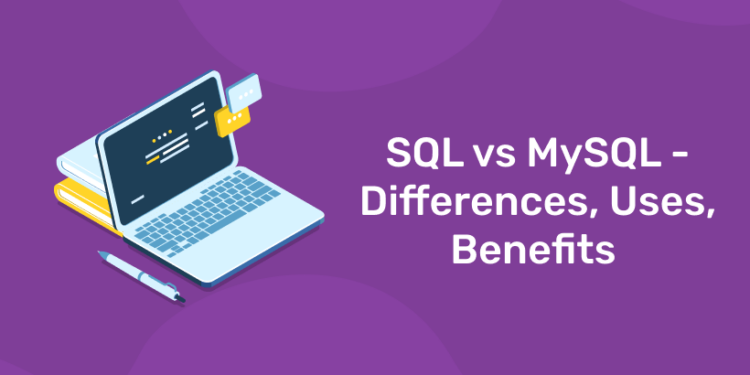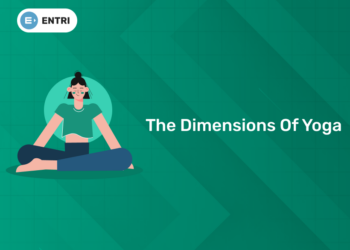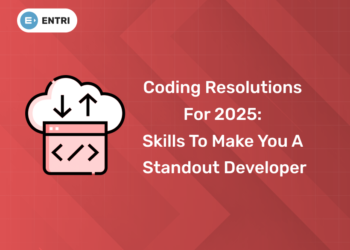Table of Contents
Languages linked to databases include SQL and MySQL. While MySQL is an open-source database product that uses the SQL standard, SQL is a programming language used to deal with data in relational databases. For applications that demand high speed, MySQL is frequently chosen over other relational database management systems (RDBMS) because it is typically faster and more effective.
Structured Query Language, or SQL, was created especially for use with relational databases. SQL is a language used in relational database management systems to store, modify, and retrieve data. The SQL language can be used to build and change tables in a database, add new data, edit data that already exists, delete data from tables, and query those tables for particular details. The majority of relational database management systems, including Oracle, MySQL, PostgreSQL, Microsoft SQL Server, and IBM DB2, favor SQL as their primary language. SQL was created by IBM in the late 1970s. It has been defined by ANSI since 1986. (American National Standards Institute). Numerous additional companies have put into practice their variants of SQL that are interoperable with one another.
A hierarchical database management system is MySQL. You use it to keep data in tables, and the columns of those tables’ rows can be used to connect the rows of those tables. The fundamental concept is that you have a collection of rows (records) and sections in one or more “tables” (or “databases”). (fields). You can further describe them with the aid of other components like keys and indexes. MySQL is a database management system that can be used with Linux, Microsoft Windows, Mac OS X, and Solaris. It is commonly used in online apps. Many online hosting plans include MySQL. Software for MySQL Server, also known as “my sequel,” is available for installation from the website.
Uses of SQL and MySQL
Although SQL is not unique to MySQL and is compatible with many other database systems, it is a language you should be familiar with if you plan to use MySQL. It is simple to learn how to use MySQL without needing to learn another language because SQL is also the primary query language used by MySQL. Relational databases hold data in tables made up of rows and columns, where each row denotes a record or object and each column denotes one of that item’s properties. If you have a database of individuals, for instance, the table might have columns for first_name, last_name, and location. Each row in the table reflects a different person, and the values kept in each field are connected to each object.
Windows Server’s SQL Server database system is used by Microsoft SQL Server. Numerous corporate apps and other software packages use it. One of Microsoft’s database management systems (DBMS) families is SQL Server. The other DBMS products in this family are Azure Analysis Services, which offers in-memory analytics tools for business intelligence apps, and Azure SQL Database, which offers hosted relational database services.
You can perform the following using SQL:
- Make fresh datasets
- Current datasets to new ones
- Make fresh sets
- Put saved processes together
- Assemble vistas
- Configure user rights
- Create database programs
- Construct web apps
- Controlling network security
- Share information with numerous people
- Offer a variety of database layouts
- Assistance with client-server design
- Get instant responses to questions.
- Carry out data processing
- Give IT assistance
- Create data-driven web pages.
You can perform the following using MySQL:
- Database to keep info
- To view and modify the data, use SQL statements.
- Ensure the integrity of the saved data and provide protection.
- Connect relational datasets to webpages and computing infrastructure
- Integrate MySQL with SQL by using the MySQL workbench application.
- Use MySQL tools to create databases and data structures.
- Utilize MySQL tools to store and manage data.
- Utilize the MySQL workbench to reverse and forward design datasets.
- Create and manage B2B services, web apps, and other things.
Benefits of SQL and MySQL
1: Which of the following is a JavaScript framework/library?
Some benefits of using SQL include the following:
- Faster and More Efficient Query Processing – SQL operates quickly. Data access could increase as a result of this fast pace. It can provide users with a quick and efficient way to get, change, or keep info.
- No need to know how to code-No lengthy or intricate code strands are required for data retrieval. One benefit of using SQL is that it doesn’t call for a deep understanding of computing and program creation. Without writing a lot of code, database systems are simple to manage. Data retrieval does not require a lot of intricate programming.
- Portable- Any application that uses a database to hold data should have portability as a feature. When building a program, a software engineer would prefer to use a small in-memory database like Apache Derby.
- Normative Language-ANSI and ISO have approved the relational database query language SQL. As a result of appropriate documentation and years of foundation, it provides all users with a consistent framework across the globe.
- Engaging Language-The subject language SQL is straightforward to acquire and comprehend. Additionally, it can be used to connect to datasets and instantly get answers to challenging inquiries.
Some benefits of MySQL are:
- In terms of protection and dependability, it is one of the most widely used information management systems. Numerous websites, including Twitter, Facebook, Joomla, Drupal, and WordPress, use it.
- Scalability- The amazing scalability of this platform can aid in the administration of integrated apps. Even if there is a sizable building filled with a ton of data, this is still accurate.
- High Efficiency—My SQL has a special database mechanism that simplifies system administration. Additionally, you can set up the MySQL database system to operate at its best speed.
- Outstanding Transactional Support: When it comes to quick transactional database options today, MySQL is at the top of the list. It has several characteristics, including reliable and automatic process support.
- The lower total cost of ownership-If you switch from your current computer applications to this platform, you might save a lot of money. Troubleshooting may be facilitated by the reliability and ease of administration.
Difference between SQL and MySQL
1. Function
The database system can be used to manage and retrieve data using the organized query language known as SQL.SQL is the query language used by the relational database system MySQL to access data from the databases.
2. Licensing
Microsoft owns SQL, a private piece of software that isn’t available to the public for free. Access to MySQL is open-source, gratis, and available to everyone.
3. Syntax
The structure and grammar are predetermined, declarative, and simple to use. Put a semicolon after the sentence and begin again. Since MySQL is the software rather than a computer language, it lacks any instructions or set formats. The most recent MySQL upgrades and versions are available, though, for better efficiency.
4. Language
SQL is a computer language that is used to create database systems. All of the fundamental computer languages, including C, C++, Perl, PHP, Python, Ruby, and many others, are supported by MySQL.
5. Platform
The most recent versions of macOS and Linux can use SQL, but it was designed for Windows. MySQL is cross-platform and flexible and functions well on Linux, macOS, and Windows.
6. Storage
Only one storage mechanism is supported by SQL for various tasks. When performing various tasks and processes, MySQL doesn’t require a lot of storage capacity and offers a variety of storage engines. Additionally, it makes the plugin storing mechanism available.
7. Data Restoration
The time consumed for data restoration in SQL is less for a large amount of data. In MySQL, the process of data restoration is quite time-consuming and requires several SQL statements for the same.
Wrapping Up
Overall, the SQL vs. MySQL distinctions offer more clarity for consumers of any company, both professional and non-technical. It aids businesses in comprehending the connection between a database language and a database. Both forms of technology are interdependent and one cannot live without the other.
SQL vs MySQL FAQs
- Are SQL Server and MySQL interchangeable?
No. Oracle’s open-source RDBMS is called MySQL. Microsoft created and oversees SQL Server
- Can SQL Server and MySQL coexist on the same system?
Yes. Since SQL Server and MySQL RDBMS operate independently and on separate platforms, your company can use both of them.
- Is SQL Server quicker than MySQL?
According to your use scenario.
- What distinctions exist between MySQL and Oracle SQL?
Oracle SQL and MySQL are both controlled by the Oracle Corporation, even though MySQL is an open-source RDBMS. The well-known MySQL database software is now owned by Oracle as a result of its purchase of Sun in 2010.










